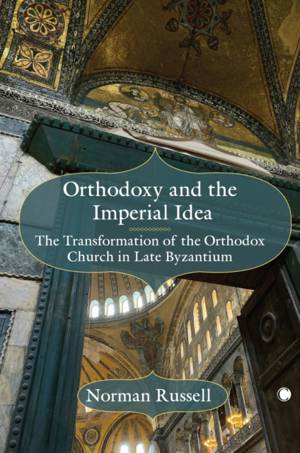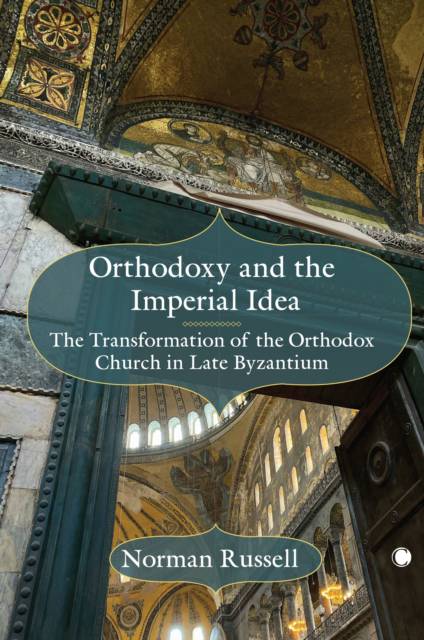
- Afhalen na 1 uur in een winkel met voorraad
- Gratis thuislevering in België vanaf € 30
- Ruim aanbod met 7 miljoen producten
- Afhalen na 1 uur in een winkel met voorraad
- Gratis thuislevering in België vanaf € 30
- Ruim aanbod met 7 miljoen producten
Zoeken
Orthodoxy and the Imperial Idea
The Transformation of the Orthodox Church in Late Byzantium
Norman Russell
Paperback | Engels
€ 64,45
+ 128 punten
Omschrijving
For those living in the East Roman Empire, it was God-protected, immune from the impermanence of other states. But in late Byzantium, intellectuals began to reconsider this assumption: could the East Roman Empire be vulnerable, even temporary? And what would that mean for the Orthodox Church? Through his engagement with influential intellectuals at the time, principally Philotheos Kokkinos, Demetrios Kydones, Cardinals Bessarion and Isidore, George Gemistos Plethon, Mark Eugenikos and George Scholarios, Norman Russell explores the strategies and responses to this seismic shift in the imagination and conceptualisation of the Church and the Empire. By exploring the details of such crucial events as the Hesychast Controversy, the ecclesiastical revolution that followed, and successive attempts to attain ecclesiastical union with the West, Norman Russell considers how the Orthodox Church adapted to survive and flourish under Ottoman rule. This is an important new contribution to the scholarship of the Orthodox Church in the Byzantine period, of interest to scholars of Byzantine civilisation, the East Roman Empire, and the Orthodox Church.
Specificaties
Betrokkenen
- Auteur(s):
- Uitgeverij:
Inhoud
- Aantal bladzijden:
- 258
- Taal:
- Engels
Eigenschappen
- Productcode (EAN):
- 9780227178904
- Verschijningsdatum:
- 28/08/2025
- Uitvoering:
- Paperback
- Formaat:
- Trade paperback (VS)
- Afmetingen:
- 152 mm x 226 mm
- Gewicht:
- 417 g

Alleen bij Standaard Boekhandel
+ 128 punten op je klantenkaart van Standaard Boekhandel
Beoordelingen
We publiceren alleen reviews die voldoen aan de voorwaarden voor reviews. Bekijk onze voorwaarden voor reviews.







